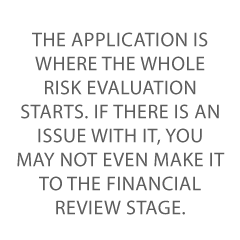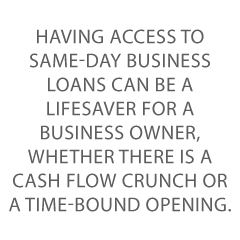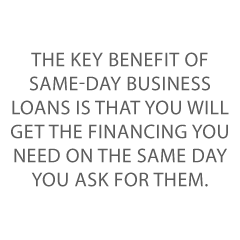
Why Underwriting Loans May Be Harder to Get
Underwriting loans is the process lenders use to determine the creditworthiness of an applicant. That is, the likelihood that a potential borrower will repay. It is a thorough evaluation of an applicant’s financial information. The goal of underwriting loans is to reduce risk to lenders.
Banks are making changes to their loan underwriting process that will make getting loans harder. These changes in underwriting loans mean it is going to take more than a strong loan application and good credit report to get funding.
What is Causing the Changes in Guidelines for Underwriting Loans?
Currently, banks are tightening up on the guidelines in their loan underwriting process. They want to avoid rising risk. Why is risk rising? There’s increasing interest rates, increasing inflation, and impending recession, among other things.
All of these things can decrease the ability of borrowers to repay a loan. Inflation means cash doesn’t go as far. Recession means there may be less money in circulation.
What Kind of Changes are Coming to the Process of Underwriting Loans?
The Fed has already raised interest rates. Soon, banks may begin lowering loan amounts and increasing income requirements. Rest assured that regardless, all of them will be scrutinizing loan applications more closely. They are looking for anything that may indicate an issue.
They won’t just be looking for issues related to finance either. Their goal is to reduce the overall risk of all loans. That means almost anything is fair game if it throws up a red flag for increased risk.
5 Steps to Help Get a Favorable Underwriting Decision from a Lender
The first step toward a positive underwriting decision is to make sure you are Fundable . Fundability
. Fundability starts with a Fundable
starts with a Fundable Foundation. All of the other steps build on that.
Foundation. All of the other steps build on that.
Step 1: Build a Fundable Foundation
Foundation
The foundation is all about the set up. You want to create a separate legal entity from the owner. That includes formally incorporating, as well as having the other building blocks of a Fundable Foundation in place. Preferably, that happens before you apply for a loan. This lends credibility to the loan application. In turn, risk is decreased in the eyes of the underwriters.
Foundation in place. Preferably, that happens before you apply for a loan. This lends credibility to the loan application. In turn, risk is decreased in the eyes of the underwriters.
What Are the Other Building Blocks of a Fundable Foundation?
- Separate contact information
A toll-free phone number listed in the 411 directory is important. Furthermore, the address should be a physical address where you can receive mail. An UPS Box or P.O. Box will not work in this case. However, you might consider a virtual address. - EIN
Get this for free on the IRS website. - D-U-N-S Number
This number is free and easy to get on the D&B website. - Separate bank account
A separate, dedicated bank account is non-negotiable for many reasons. Many credit providers will not even consider approval without one. If a separate bank account is an issue due to a bad ChexSystems report, look for one you can get that will not use ChexSystems. - Professional website and email address
The website and email address should use the same URL. In addition, the URL should have the company name in it, if possible.
Step 2: Build A Strong, Separate Credit Report
Good credit history is vital to making it through the process of underwriting loans. Many owners find out too late that they have no credit separation at all. Rather, everything is tied to their consumer credit report.
When that happens, that report is all the underwriters have to look at. There is nothing to mitigate the risk related to the individual. On the other hand, if there is a separate report for the corporation, it can reduce risk in the eyes of the underwriters. That is, of course, if it is positive. So, make payments on time.
Building a Fundable Foundation, including all of the factors above, is the first step to separating company credit from personal credit.
Foundation, including all of the factors above, is the first step to separating company credit from personal credit.
The next step is to work with vendors that report payments to your business credit report. This will increase the number of positive payment experiences on your credit report. That is, as long as you make payments. At the same time, you can use these accounts to finance things you need to run your corporation. In turn, cash flow will be easier to manage.
Consequently, your corporate credit score will increase. But be careful. You have to find the perfect balance between enough credit for efficient cash flow management and too much debt. Credit Suite can help you both build a foundation and find vendors that report, among other things.
It is important to remember that the credit building process is a journey, not a destination. As such, don’t stop! Instead, continue growing and using your corporate credit to finance growth.
Then, you’ll increase revenue and profits. As a result, you will be more likely to meet underwriters’ income requirements.
Step 3: Respond to the Underwriter’s Inquiries As Quickly As Possible
Provide lenders what they ask for as quickly as possible. It will speed up the process. An underwriter may ask for financial records and additional documentation related to either your company or you as an individual.
What Might An Underwriter Ask to See When Underwriting Loans?
- Recent bank statements
- Commercial and personal tax returns
- Insurance
- Current credit lines
- Retirement accounts
- Savings accounts
- Cash reserves
- Other data necessary for income and asset verification
Step 4: Review and Repair Your Consumer Credit Score Because All Credit History Matters When Underwriting Loans
A traditional lender will consider consumer credit and the owner’s individual financial situation in the underwriting process. Furthermore, some CRAs use personal credit in their business credit score calculation.
They may also look at other personal financial information, including banking history. Financial faux pas such as bounced checks and overdrawn accounts will not sit well with an underwriter.
Keep in mind, they may see your personal payment history on various loan accounts, credit cards, whether personal or commercial in their effort to reduce risk.
Step 5: Get the Loan Application Right
The application is where the whole risk evaluation starts. If there is an issue with it, you may not even make it to the financial review stage.
Can an underwriter deny to approve you for a simple mistake on a loan application? Yes, they can. And they will, because they aren’t likely to take the time to consider whether it is a simple mistake or an actual issue. The fact that there is a mistake at all indicates a risk issue to them.
What Does It Take to Get the Loan Application Right?
Of course it needs to be neat and complete. If the underwriter cannot read it, or there is missing information that is not explained, it will slow things down. Not to mention, if you do not proofread your application for spelling, an underwriter may have serious questions about your ability to run a corporation.
Most potential borrowers realize these things. Yet, some factors that indicate risk and cause you to be denied a loan take many by surprise.
Consistent, Verifiable Information
Avoiding being denied is about more than financial information. Consistency is necessary. The truth is, discrepancies of any kind can cause suspicion of fraud when it comes to underwriting, whether it is financial or not. Surprisingly, even tiny oversights can cause big problems.
Application denials for inconsistent information are common due to this fact. A loan application that appears fraudulent won’t even make it past the initial review. The financial information may never even come under consideration.
Many things can cause suspicion of fraud when it comes to underwriting a loan, but there are two specific factors that tend to take even the most savvy applicant by surprise.
Name Consistency
The name of the company has to be the same everywhere. Even an ampersand in one place and the word “and” in another can cause issues with underwriting. In fact, a misplaced apostrophe or a different spelling can do the same.
Consider this example. Say that the name on the Articles of Incorporation and filed with the Secretary of State is Joe and Bob’s Stop & Shop. However, the name on the application is Jo & Bob’s Stop and Shop. This application may very likely be thrown out as soon as the discrepancy in names is noticed.
Lack of Ability to Verify Information
Don’t take for granted that your response to the lender’s requests for income and other data will be blindly accepted. How information isn verified during underwriting can vary. Still, The lender has plenty of ways to do it, and they will. Never lie about income, or anything else for that matter.
Bonus 1: Don’t Apply for New Debt When Going Through the Underwriting Process
Basically, if you take on new debt during underwriting, it could set the whole thing back. If you do get a new credit line, be sure to volunteer that information as quickly as possible.
Don’t let the underwriters find it on their own and have to ask about it. This goes for any new debt you take on after the loan goes to underwriting.
New credit cards and even vendor accounts should be avoided during the underwriting process, but if it is necessary to get one, let them know.
Bonus 2: Strong Collateral or a Personal Guarantee May Help
Obviously if you have collateral or you are open to using a personal guarantee, you may have an easier time getting through underwriting. These things can not only help you get approval, but they can also help get you more money at a lower interest rate.
But, what if you don’t have collateral or a strong personal guarantee to give? You still have options.
How Can Credit Suite Help You Get Through Underwriting and Get the Funding You Need?
Our systematic formula walks you step-by-step through building a Fundable  Foundation that will help you soar through the underwriting process and closer to getting the loan you need.
Foundation that will help you soar through the underwriting process and closer to getting the loan you need.
Then, we guide you to the specific vendors and lenders that will work best for your needs, helping you build a strong credit report that you can use to get even more funding for growth.
Commercial Loan Underwriting May Be Changing, But You Aren’t Alone
The changing economy is leading banks to tighten up on loan underwriting guidelines. Building Fundability and separate credit will help, and we can help you do just that. In addition, we can take a look at existing credit history and help you find ways to make improvements to your company credit report.
and separate credit will help, and we can help you do just that. In addition, we can take a look at existing credit history and help you find ways to make improvements to your company credit report.
We have our finger on the pulse of the commercial loan industry. Our relationships with credit providers are a bonus to you. We understand the loan services they offer and what it takes to qualify. In addition, we recognize lending patterns. Because of this, we know who is approving more liberally at any given time.
As a result, we can help you find the lender with the loan options that will work best for you. This saves an enormous amount of time. And in the long run, it saves money. Get started today with a free Business Finance Assessment.
The post Why Underwriting Loans May Be Harder to Get appeared first on Credit Suite.





 #5 Business Financing with Bad Credit: Cash Flow Financing or Merchant Account Financing
#5 Business Financing with Bad Credit: Cash Flow Financing or Merchant Account Financing
 #3 Business Financing With Bad Credit: Other Collateral Financing
#3 Business Financing With Bad Credit: Other Collateral Financing







